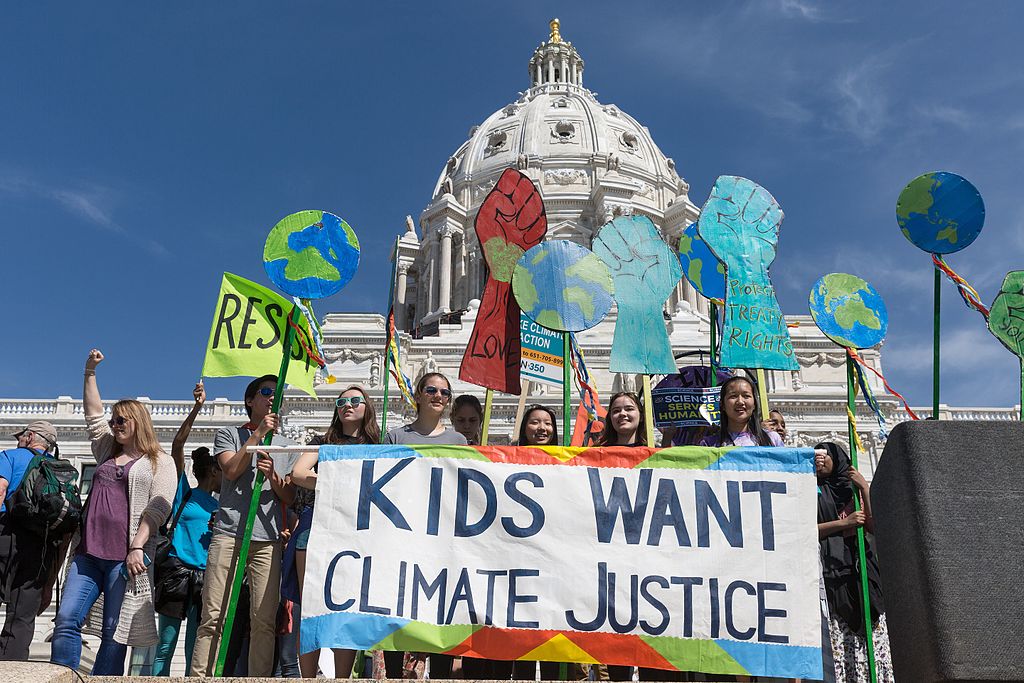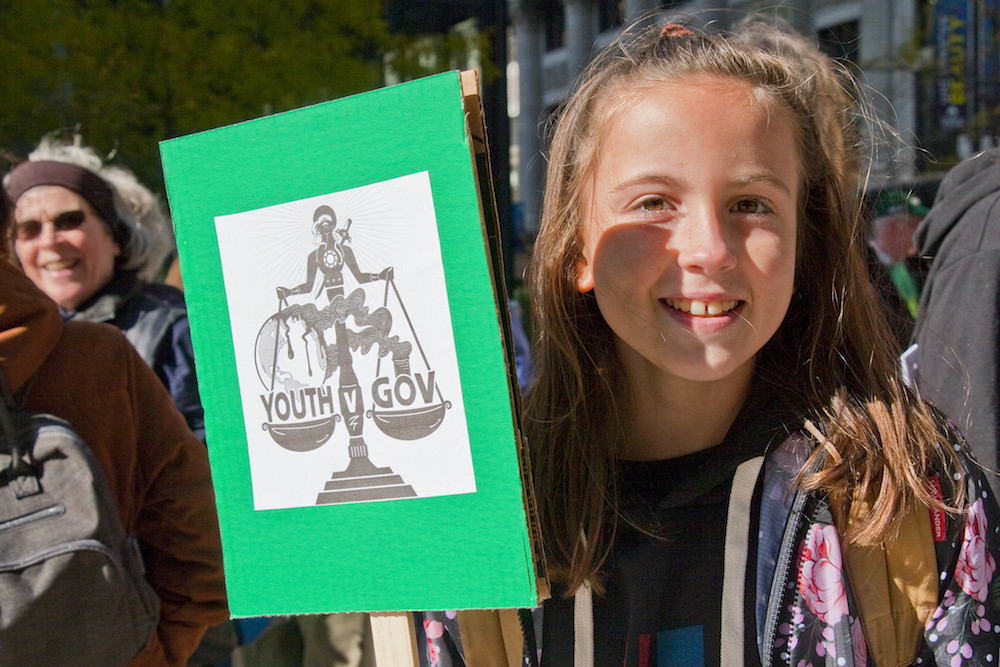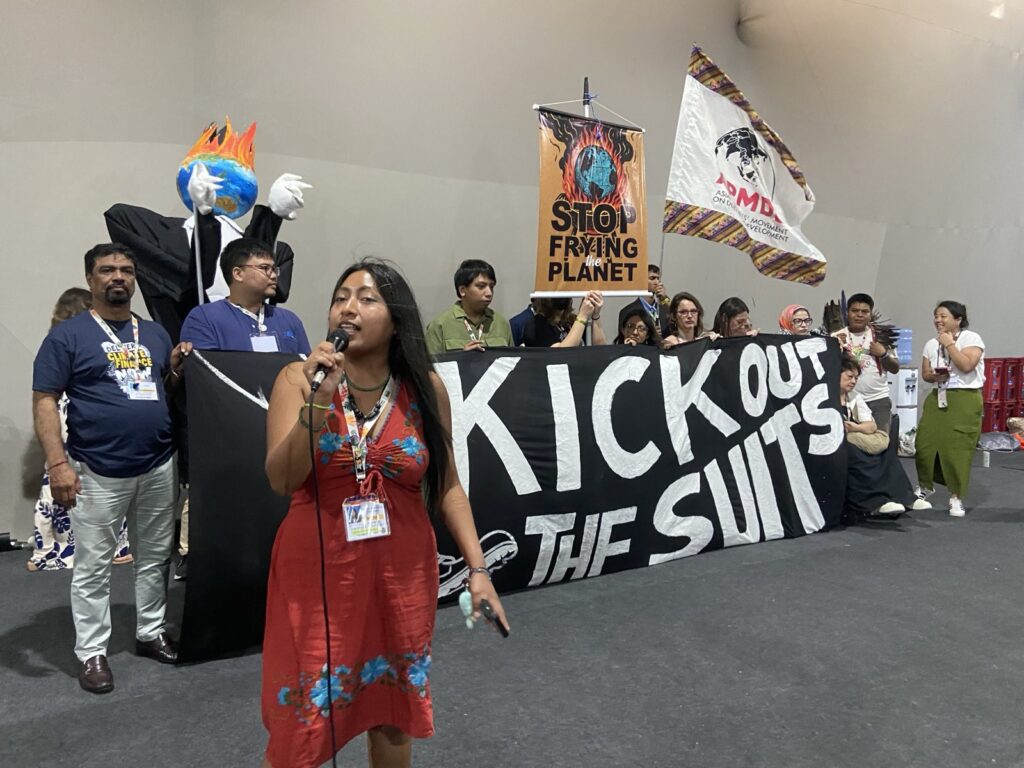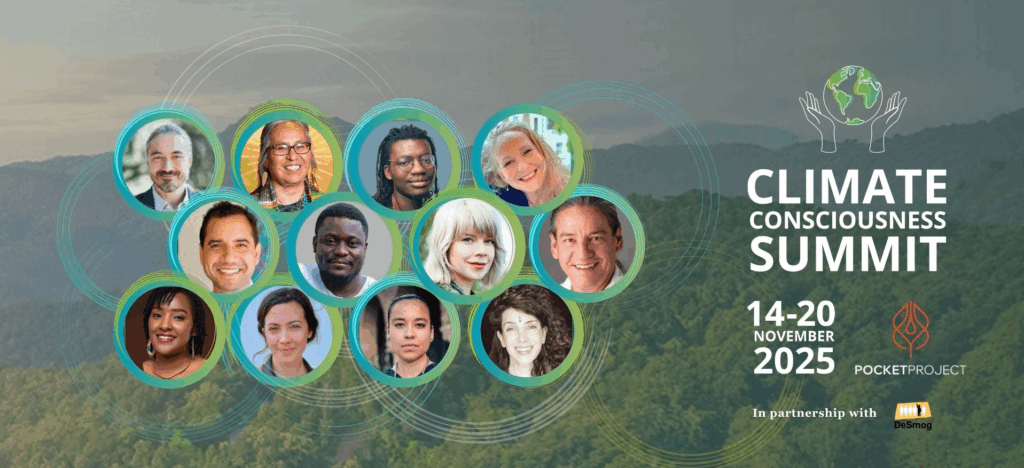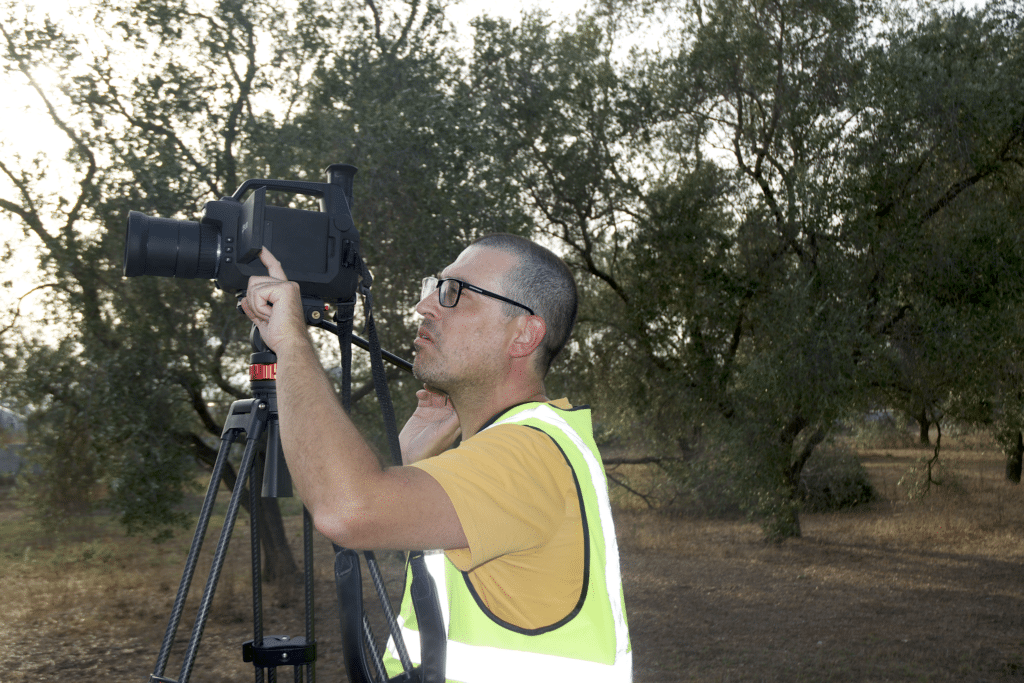When a pair of Ninth Circuit Court judges ordered dismissal of a landmark youth climate change lawsuit last week, they concluded that the U.S. government may be harming the nation’s youth through its fossil fuel-based energy policy, but that courts cannot stop that harm. “Rather, the plaintiffs’ impressive case for redress must be presented to the political branches of government,” Judge Andrew Hurwitz wrote in a split 2-1 decision dismissing Juliana v. United States.
The decision to dismiss Juliana without a trial raises troubling implications about the state of America’s constitutional democracy and the role that courts can play in harming, rather than protecting, the public interest, according to legal and scientific experts.
The case, first filed in 2015 against the Obama administration, sought a court order directing the federal government to devise a science-based climate recovery plan to draw down carbon emissions and protect young people’s right to a climate system “capable of sustaining human life.” The 21 young plaintiffs claimed violations of their constitutional rights, asking the courts to act as a check against the political branches that have exacerbated the climate crisis.
Trial Matters and Fossil Fuel Cash
Up to this point, the courts have been unwilling to halt the case, which had been scheduled for trial twice, only to be derailed by the Trump administration’s attempts to avoid trial. A trial would have exposed the government’s longstanding record of cozying up to fossil fuel interests and continuing to support their development with federal policy and dollars, despite extensive knowledge of the climate crisis coming from its own scientists.
A trial itself could have presented a major breakthrough in a political system paralyzed by fossil fuel money and influence, but the Ninth Circuit ruling shut down that opportunity, redirecting the plaintiffs back to that system flooded with special interest cash.
Exactly 10 years ago, the Supreme Court opened the floodgates to unlimited corporate spending in elections with the infamous Citizens United decision. Since then, according to consumer advocacy nonprofit Public Citizen, “more than 2,200 corporations have reported a total of $313 million in donations to more than 500 political entities for the purpose of influencing elections. Additionally, 30 corporate trade groups, which do not disclose their donors, have spent $226 million, for a corporate spending total of $539 million.”
The fossil fuel industry, Public Citizen reports, “is the best represented among the top 20 corporate donors.” Chevron, for example, has spent almost $8.2 million to elect Republicans in Congress. Koch Industries has spent $5.9 million, and coal company Murray Energy has spent nearly $3 million, including $1 million to pro-Trump super PAC America First Action and contributions to several other GOP-supporting super PACs.
The short answer is yes, big oil is winning. $3.6 Billion in corporate propaganda over the last thirty years has worked. https://t.co/ywuCvUauLp
— Robert Brulle (@RBrulle) January 8, 2020
This fossil fuel money, further enabled and also presumably cloaked by Citizens United, has effectively made recipients subservient to the donors’ interests, as environmental sociologist Robert Brulle’s research on climate science denial funding has previously suggested.
“The real issue here is one of democracy. Without a free flow of accurate information, democratic politics and government accountability become impossible,” said Brulle in 2013. “Money amplifies certain voices above others and, in effect, gives them a megaphone in the public square. Powerful funders are supporting the campaign to deny scientific findings about global warming and raise public doubts about the roots and remedies of this massive global threat.”
Meanwhile, the last decade was the warmest on record, two U.S. government science agencies reported this month, but Congress has failed to pass any piece of major legislation on climate action. And the executive branch, no matter who has been in office, has also failed to address the climate crisis at the scale and urgency needed and instead kept supporting one form of fossil fuels or another, as climate activist Bill McKibben has pointed out with the case of natural gas.
This is especially apparent in the Trump administration, which is actively rolling back 95 environmental regulations and climate protections while trying to expedite fossil fuel development.
Government Support for Fossil Fuels
The Ninth Circuit court opinion noted the government’s role in prioritizing fossil fuels. “The government affirmatively promotes fossil fuel use in a host of ways, including beneficial tax provisions, permits for imports and exports, subsidies for domestic and overseas projects, and leases for fuel extraction on federal lands.”
Furthermore, an amicus brief filed last year in support of the youth plaintiffs by Democratic members of Congress makes the following point: “The issues of whether resources foundational to human survival and security can be destroyed or irreversibly harmed cannot be deliberated solely by our government’s political branches: Elected officials accept money from the very interest groups that profit off of this destruction.”
Fossil fuel influence and money has largely captured political branches of the U.S. government, and yet the Ninth Circuit majority still concludes “that the plaintiffs’ case must be made to the political branches or to the electorate at large.”
Young supporters of the Juliana v. United States climate lawsuit rally in Chicago in 2018. Credit: Charles Edward Miller, CC BY–SA 2.0
In a scathing dissent, District Judge Josephine Staton rebuked this conclusion, warning that deferring to the political branches when they are perpetuating a grave harm would be detrimental to constitutional democracy.
“The majority laments that it cannot step into the shoes of the political branches, but appears ready to yield even if those branches walk the Nation over a cliff,” Staton writes. “This promotes separation of powers to the detriment of our countervailing constitutional mandate to intervene where the political branches run afoul of our foundational principles.”
Several legal experts concurred with Staton’s take that the majority opinion shirks the judiciary’s core function in our system of government.
“Yet remarkably, having recognized the gravity of harms affecting these plaintiffs and the future generations that they represent, and the responsibility of the U.S. government for causing those harms, the Ninth Circuit concludes that it is not the role of courts to remedy that injustice,” said Carroll Muffett, president of the Center for International Environmental Law. “But for centuries, and emphatically, that has been the definition of the role of courts: when plaintiffs are suffering harms to fundamental rights at the hands of other branches of government, addressing those wrongs and protecting plaintiffs’ rights is the essential and inescapable domain of the federal courts.”
9th Circuit dismissed Juliana v. US, the youth climate lawsuit, finding that the court does not have the power to order the remedial plan sought by plaintiffs – a drawdown of GHGs. The panel also found that plaintiffs alleged injury and that fed policy may be the cause. pic.twitter.com/XpQgP5mkUV
— Mike Burger (@ProfBurger) January 17, 2020
Vermont Law School Professor Patrick Parenteau, who was this author’s climate law professor, offered a similar reaction. “The majority takes the position that as bad as all this [is], there is ‘nothing we can do about it.’ This is wrong as a matter of law and an abdication of the solemn duty the courts have in our democracy,” Parenteau said. “Having acknowledged that this is a ‘matter of national survival’ and that the other branches of government are utterly failing to acknowledge, let alone confront the danger, it is absolutely the duty of the judiciary to step in to enforce the fundamental rights guaranteed by the constitution.”
Furthermore, the judges who ruled to dismiss the youth climate case failed to demonstrate why the court should not uphold that historical duty, Parenteau added. “As the dissent points out, the majority cites no compelling precedent for abandoning this core function in our system of constitutional checks and balances.”
Waiting Not an Option
The plaintiffs and their lawyers said they are not dropping their case and plan to ask the full Ninth Circuit Court to weigh in. “The Juliana case is far from over. The youth plaintiffs will be asking the full court of the Ninth Circuit to review this decision and its catastrophic implications for our constitutional democracy,” said Julia Olson, executive director of the nonprofit Our Children’s Trust and co-counsel for the youth plaintiffs.
“THIS ISN‘T OVER,” added Kelsey Juliana, lead plaintiff in the case. “Prepare for a petition for review en banc to the Ninth Circuit as we refuse to do anything but move forward and ultimately win. Courts do have an obligation to address issues of constitutional, existential crisis, like climate change.”
THIS ISN’T OVER! BREAKING: Today, a divided Court recognized the gravity of the evidence on the youth plaintiffs’ injuries from climate change and the government’s role in causing them. 1/3 pic.twitter.com/DVcBK8tocq
— Our Children’s Trust (@youthvgov) January 17, 2020
According to Parenteau, this could be the end of the road for the Juliana plaintiffs as the courts have indicated they are uncomfortable with the sweeping remedy the plaintiffs seek. The law professor said review by the full Ninth Circuit is unlikely to result in a different outcome, and the Supreme Court is also unlikely to treat the case in a way favorable to plaintiffs. “As disappointing as the panel decision is, it could be far worse if it were adopted and perhaps expanded by the conservative majority on the Court,” he said.
Left without judicial recourse, America’s young people have few other options when their government has refused to act on the climate crisis. “The plaintiffs have waited their entire lives for the political branches to take ownership of and action on the climate crisis,” Muffett noted. Continuing to wait, as Judge Staton acknowledges, “is not an option” given the scientific urgency.
As social scientists Geoffrey Supran and Naomi Oreskes point out, fossil fuel interests have spent decades and billions of dollars on “advertising and lobbying challenging science, slandering scientists, and attacking policies to protect their profits. In so doing, they have undermined — and continue to undermine — Americans’ chances of a just and stable future.”
US Congress recently made its first foray into investigating fossil fuels, with @AOC leading the charge.
My and @NaomiOreskes‘s message to Congress in The @Guardian today is this: “Keep going. Because Big Oil is the new Big Tobacco.”https://t.co/90MNyGgfRZ
— Geoffrey Supran (@GeoffreySupran) January 20, 2020
Polling shows that a majority of Americans support the government taking action on climate change. However, continued government ambivalence and the ongoing effort by fossil fuel interests to undermine climate action suggests a political system that is not responsive to the public interest, points out Union of Concerned Scientists President Ken Kimmell.
“In a functional democracy, communities facing catastrophic flooding, heat waves, and other climate impacts would be able to press elected officials to comprehensively and effectively cut the emissions of heat-trapping gases and reduce the massive harm that we are experiencing now and will experience in the future,” Kimmell said in a statement responding to the dismissal of the Juliana climate case. “But, as District Judge Staton stressed in her dissent, we live in a time where the government has failed to act — in large part due to the fossil fuel industry’s outsized influence — despite overwhelming scientific evidence that delaying action will only lock in more severe climate impacts.”
Main image: Kids call for climate justice at the Minnesota March for Science in April 2017. Credit: Lorie Shaull, CC BY–SA 2.0
Subscribe to our newsletter
Stay up to date with DeSmog news and alerts


